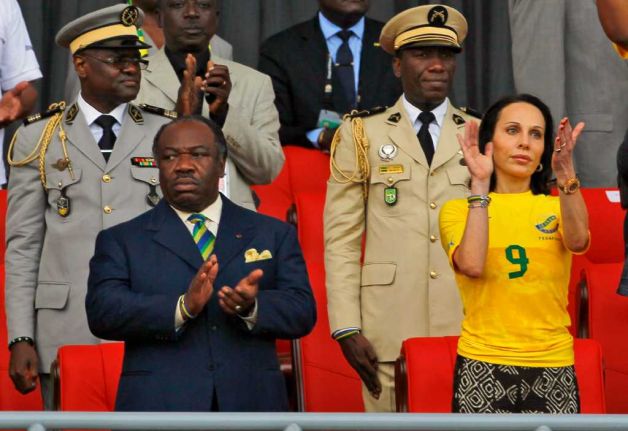Last weekend, Gabon and Equitorial Guinea , the co-hosts of the ongoing 2012 African Cup of Nations, were eliminated from the tournament in the quarter-finals. Equitorial Guinea was beaten by three goals to nothing by Ivory Coast in Malabo (the capital city of Equitorial Guinea) while Gabon lost to Mali on penalties in Libreville (the capital city of Gabon).
In the case of Gabon, the president Ali Bongo watched the game. His country was eliminated right under his nose. The rules of the game were not rigged in his favor on his home soil. In fact, they could not be rigged. When Pierre-Emerick Aubameyang 's penalty kick was saved by the Malian goalie, Ali Bongo could not change the rules in favor of his country. There were millions at the stadium and millions of people around the world watched the game on TV. It was transparency at the highest level. At club level, the ruthless dictator, the late Mobutu Sese Seko had no choice but to hand over the African clubs championship cup to Ibrahim Sunday after the Ghanaian team, Kumasi Asante Kotoko of Ghana, had beaten his team TP Engelbert (now TP Mazembe) of Zaire in Kinshasha. This was in 1970 and Mobutu had only been in power for five years but he was already a ruthless dictator; he allegedly imprisoned TP Engelbert's player, Tsinabu, for missing a penalty in the game. If he had his way, he would have rigged the rules of the game in favor TP Engelbert. But he couldn't.
When Ghana hosted the African cup of nations tournament in 2008, the national team, the Black Stars, was eliminated in Accra by Cameroun. In 2010, Angola failed to win the cup although she hosted the competition. In 1982, Ghana beat Libya in the final game on Libyan soil to win the cup in presence of the dictator, Muammar Gaddafi. [Trivia: Gaddafi's speech at the opening ceremony on March 5, 1982 lasted nearly two hours. He used it to promote his political ideology (i.e., Green revolution)].
The maiden tournament of the African Cup of Nations held in Sudan was won by Egypt. The foregoing examples clearly show that, since its inception in 1957, the African Cup of Nations competition has witnessed hosts and co-hosts who failed to win the cup. The average African football fan takes this fact for granted. Yet it underscores an important, albeit obvious, lesson in governance: the positive effect of transparency on governance.
Ali Bongo's father, Omar Bongo, was the president of Gabon for 42 years from 1967 until his death in office in 2009. Ali was elected president in 2009. The Bongo clan has won every election in Gabon under very dubious circumstances. Now think about the following thought experiment: suppose Ali Bongo and his cronies were the only spectators at that quarter-final game between Mali and Gabon. Suppose no one could watch the game on TV, the web, etc. Would Gabon have been eliminated from the competition? No!!! Surely, Ali Bongo wanted Gabon to win the African cup of nations. Why couldn't the Bongo clan perform the usual tricks?
Africa does not have a stellar record as far as free and fair presidential elections are concerned. In fact, the record is abysmal. In contrast, Africa has shown, for more than 50 years, that she can organize a football competition with utmost transparency, freedom, and fairness on the field of play. Impressive!!!
This brings me to the main point of this short piece. Ghanaians will be going to the polls this year to elect a president. This presidential election need not be a "do-or-die" affair or an "all-die-be-die" affair. We can ensure that it is free and fair by making it transparent. As much as possible, voting at each polling station should be like a football match at an African cup of nations tournament: transparency, transparency, transparency. At the minimum, we need a group of impartial policemen and women to maintain law and order at every polling station. Once the votes at a polling station are certified by the representative of the electoral commission with the consent/approval of the representatives of the political parties, there will be no need, except in exceptional cases, for arguments in the so-called "strong room" at the headquarters of the electoral commission in Accra (e.g., as seen in the internationally acclaimed movie "An African Election"). Why is it even called the "strong" room? Do we need such belligerent terms or expressions to be associated with our elections? My brothers and sisters, it can't be that complicated, scary, and daunting. Transparency, transparency, transparency. Yes, we can!!!!
written by J. Atsu Amegashie



